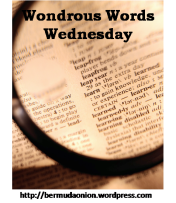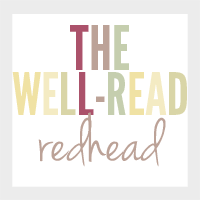Title: The Thief of Auschwitz
Author: Jon Clinch
Publisher: unmediated ink (self-published)
Publication Date: January 2013
Source: e-book provided by the author for an honest review
Plot Summary from Goodreads
:
"The camp at Auschwitz took one year of my life, and of my own free will I gave it another four."
So begins The Thief of Auschwitz, the much-anticipated new novel from Jon Clinch, award-winning author of Finn and Kings of the Earth.
In The Thief of Auschwitz, Clinch steps for the first time beyond the deeply American roots of his earlier books to explore one of the darkest moments in mankind’s history—and to do so with the sympathy, vision, and heart that are the hallmarks of his work.
Told in two intertwining narratives, The Thief of Auschwitz takes readers on a dual journey: one into the death camp at Auschwitz with Jacob, Eidel, Max, and Lydia Rosen; the other into the heart of Max himself, now an aged but extremely vital—and outspoken—survivor. Max is a renowned painter, and he’s about to be honored with a retrospective at the National Gallery in Washington. The truth, though, is that he’s been keeping a crucial secret from the art world—indeed from the world at large, and perhaps even from himself—all his life long.
The Thief of Auschwitz reveals that secret, along with others that lie in the heart of a family that’s called upon to endure—together and separately—the unendurable.
My Review:
Remember back when I said
I was struggling with self-published novels? To summarize; I said that I had had very bad luck with self-pubs in the past (which is why my review policy says I do not accept them for review). However, I had been solicited to review several that sounded really, really promising, so I took the plunge and agreed to read two of them. The first was
Bluff by Lenore Skomal, which, though it had its hitches, was overall a very coherent and engaging read. My cold reviewer heart began to melt, just a tad.
The Thief of Auschwitz is the second self-published novel that I decided to read and review. This is partially because I was intrigued by Jon Clinch's personal publication journey. You can read about it
HERE, but basically, he had what so many authors covet: a publishing deal with Random House. Even so, it ended up causing him more frustration than success, so for his newest novel, he decided to self-publish. His "microbrewery approach," as he calls it, allows him to have more control over the success or failure of his writing, from the social media outreach, to the sales numbers on Amazon. It was a risky move, but admirable--and so far, it seems to be working.
Okay, enough talking about how Jon Clinch kicked the publishing industry in the ass. What did I think of the book?
I thought...the book rocked.
Gripping, masterfully written, profound--I sound like a flippin' book jacket, but
The Thief of Auschwitz is all of these things.
The Holocaust is a difficult subject for authors to tackle, because it's been written about so many times before. Adding another fictional perspective runs the risk of either not hitting the mark that the nonfiction accounts describe, or repeating the impassioned efforts of other fiction novels. However,
The Thief of Auschwitz is not lacking in authenticity or sentiment, and in fact captures the harrowing everyday lives of the death camp prisoners in a way that I found to be remarkably unique.
Clinch's writing style is much of what drives that uniqueness. Most Holocaust books I've read (everything from
Anne Frank to Wiesel's
Night) focus very much on using passion-filled language to nail down the emotional core of that time period--which, of course, is appropriate and often unavoidable. However, Clinch's novel speaks in a crisp, straightforward manner about the things the Rosen family had to do to survive in the camp, and in so doing, the emotional aspects seep out between the lines. It is amazing to see how the family moves from being carefree and compassionate, to hardened and survival-focused by the time we reach the end:
"The good news...is that there's been a catastrophe on the rail project and scores of men have died."
Plus, the mystery. The story of the family's time in the camp is told alongside Max's modern-day perspective, as he (now a world-renowned painter at the end of his career) slowly reveals a secret that he has been keeping from the art world. Clinch builds the tension in both the historical narrative and Max's secret in the last 10% of the novel, to the point where you literally will not want to put it down. All is not revealed until the very end, and while it's not a
Gone-Girl-esque atom-bomb ending, it's still a reveal that takes your breath a bit, and fits with the emotional climate of the rest of the novel.
My only (small) gripe about this novel is the title. While there is thievery involved (and it relates to the central mystery of the story), I just felt like it didn't capture the majority of the plot very well. There are so many other things that I think the title could capture, about art and beauty and love through adversity, but it just doesn't. Again, this is a very small disappointment, as no matter what the title, the book itself is still awesome.
Final verdict: read this book. If you already gravitate towards books about the Holocaust, this is a must. But even if you don't, the Rosen family's story is still one that is painstakingly told and worth experiencing.
(As for me and self-pubs? Clinch knocked this one out of the park, but I'm still taking it day by day...)










